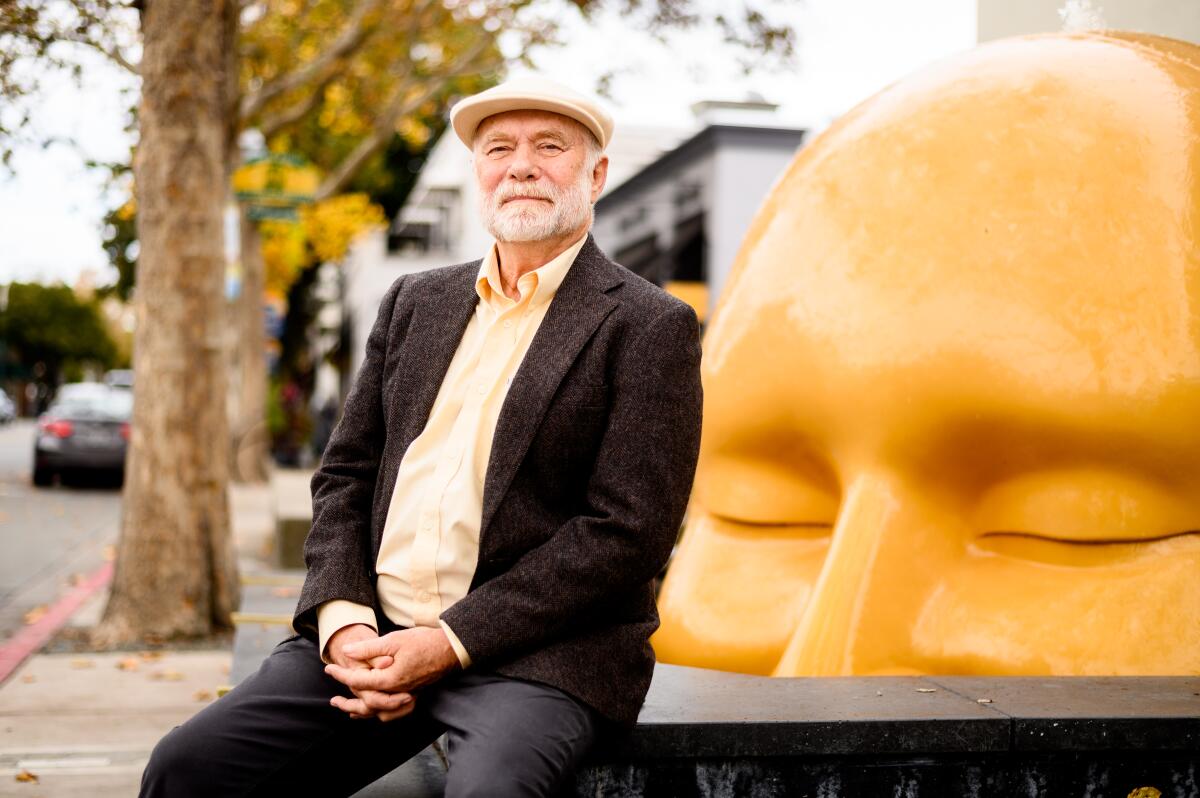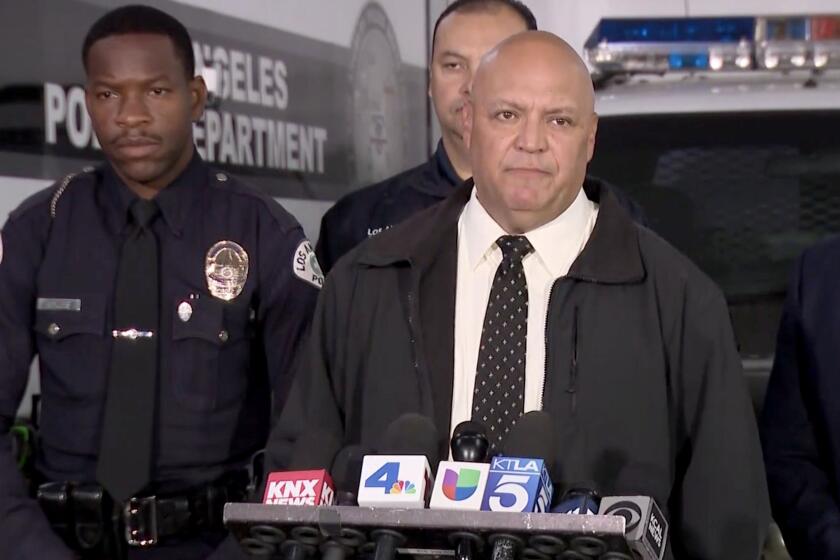Should psychotherapists be required to report patients who look at child porn?

For years, California law required psychotherapists to report any patient who admitted developing, duplicating, printing or exchanging material depicting an obscene act involving a child.
The therapists accepted that requirement. They regarded it as an obligation to report producers and distributors of child pornography.
But when the Legislature amended the law in 2014 to reflect new technology, many therapists balked, complaining the new wording required them to inform on patients who posed no threat to others.
The amendment requires therapists to tell police of patients who have admitted streaming or downloading sexually explicit material involving minors.
That means that the crime of looking at child porn online must be reported. Failure to report may result in a criminal fine against the therapist and revocation of his or her license.
The California Supreme Court will soon decide whether to revive a challenge to the law brought by therapists who treat people for sexual compulsions. Instead of helping children, the therapists argue, the new reporting requirement will discourage people from seeking help for porn addictions and other sexual proclivities.
Prosecutors defending the requirement counter that children are exploited every time someone looks at obscene images of them. The need to protect minors, they contend, outweighs the privacy concerns of patients.
Don L. Mathews, one of the psychotherapists challenging the law, said he now must inform new patients that they will have to speak in code if their problem involves pornography and minors.
“Say, ‘I have been looking at pictures that disturb me and I want to work on it,’ ” Mathews said he tells them.
Two lower courts threw out the therapists’ suit.
Looking at child porn “is reprehensible, shameful and abhorred by any decent and normal standards of society,” a Los Angeles-based state court of appeal wrote in upholding the suit’s dismissal.
Mathews conceded: “This is a terribly unpopular cause.”
Therapists have long been obligated to report patients who present a threat to themselves or others, a requirement that the challengers do not dispute.
But they point to research that suggests most people who have looked at child porn are unlikely to have sexual contact with children, and balk at reporting a patient they do not believe is a danger.
Sharon O’Hara, a Los Angeles County therapist who began her career treating rape survivors, said people “with true porn addictions tend to look at everything.”
“They are looking for intensity,” she said. “It is the intensity and shock value” they seek.
She compared them to people who play violent video games but lack a propensity for violence in real life.
Ira Ellman, one of several scholars who joined a friend-of-the-court brief in the case, said the state law is based on misconceptions.
“Half of the people who molest children don’t test positive for pedophilia, and a lot of people who do test positive for pedophilia are almost at zero risk for molesting a child,” said Ellman, a retired law and psychology professor from Arizona State University and now a scholar at UC Berkeley’s Center for the Study of Law and Society.
The scholars cite a federal government study that followed men whose only sexual offense was viewing child pornography and found that 96.4% committed no contact sexual crime during an 8½-year follow-up period. A 2010 study found that “online offenders rarely go on to commit contact sexual offenses.”
Therapy may not be able to change a person’s sexual interest in minors, Ellman said, but it can help someone control impulses and avoid criminal acts.
People who molest children are likely to have antisocial personality traits, including lack of empathy, the scholars said, and therapists can identify them.
“I am not suggesting there is nothing wrong with looking at pictures of kids,” Ellman said. “Obviously, the creation of such a picture requires horrible abuse of a child. Everybody agrees that is a horrible thing.”
The California Medical Assn., which weighed in the therapists’ case as a friend of the court, was critical of the decisions by the lower courts but argued there was too little evidence to decide whether the reporting requirement should be overturned.
Curtis A. Cole, who represented the medical association and other groups, said the court should not make a broad policy until all the facts are determined in a trial, including whether therapy actually works.
The therapists “are saying, ‘trust us,’ ” Cole said in an interview. “My answer is, I hope you are right, folks, but show me the money. I want to see some peer-reviewed articles.”
During a California Supreme Court hearing in October, Chief Justice Tani Cantil-Sakauye said that technically the Child Abuse and Neglect Reporting Act has not changed. Downloading something on the internet is making copy of it, which had been grounds for reporting before.
Mark S. Hardiman, a lawyer representing the therapists without charge, disagreed, telling the court the change amounted to “an inadvertent expansion of the law.”
He said the new wording mattered because it required therapists to report patients who admitted to ever having having looked at sexual images of minors, including teens who might view images involving people their age.
Therapists are not required to report other illegal conduct that patients may divulge.
Several justices suggested at the hearing that more information was needed to determine whether the state requirement should be upheld. The lawsuit was dismissed on a pretrial motion before evidence could be taken. Both sides in the case said a trial was unnecessary. They wanted a straight up-or-down ruling on the constitutionality of the law.
Hardiman, a former federal prosecutor who helped convict a child porn distributor, called the reporting requirement “bad policy” that one day could lead to “telling psychotherapists that they need to report other types of socially repugnant behavior.”
“Sometimes the unpopular needs to be defended,” he said.
More to Read
Start your day right
Sign up for Essential California for news, features and recommendations from the L.A. Times and beyond in your inbox six days a week.
You may occasionally receive promotional content from the Los Angeles Times.







